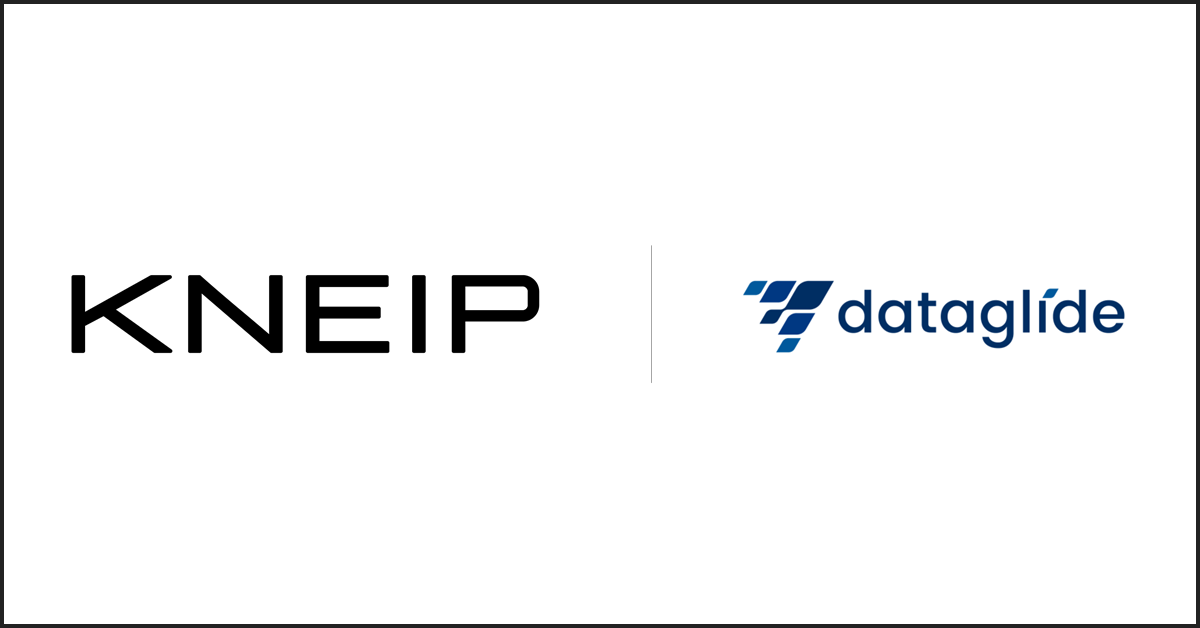Published
- 06:00 am

Snapdeal, India’s leading value commerce platform, has joined hands with BOB Financial and NPCI to launch a co-branded contactless RuPay credit card that aims to popularise the adoption & usage of credit cards among the growing number of online buyers from India’s smaller cities and towns. The co-branded credit card will be equipped with contactless features and will be offered on the RuPay platform.
As a Bharat-focused e-commerce company, Snapdeal receives more than 86% of its orders from outside metro cities, with more than 72% of its orders come from buyers living in Tier 2+ cities & towns, each with a population of less than 1 million (also referred to as “Bharat). Snapdeal’s core target audience is the value-seeking, middle-income, price-conscious buyers who predominantly live in the smaller cities of India.
BOB Financial Solutions Limited (BFSL), is a wholly-owned subsidiary of Bank of Baroda (BoB), one of India’s largest public sector banks. Established in 1994, BFSL issues Bank of Baroda credit cards, with its key differentiator being simple, easy-to-understand products that are fairly priced and efficiently serviced.
RuPay is the first-of-its-kind Global Card payment network from India, with wide acceptance at ATMs, POS devices, and e-commerce websites. RuPay is conceived and operated by the National Payments Corporation of India (NPCI), the umbrella organisaton that powers retail payments in the country.
The Snapdeal-BoB co-branded contactless card, powered by RuPay will be rolled out to users by March 2022 and will provide a range of reward points and other benefits to the cardholders - both while they shop on Snapdeal and also when they use the card at other online and offline transaction points.
“We are particularly delighted to partner with BOB Financial and NPCI for the launch of this credit card. Just like Snapdeal, both Bank of Baroda & RuPay have a deep connect with users in Bharat. The synergies of this partnership will help accelerate the adoption of digital payments, especially amongst users living beyond India’s metros and Tier 1 cities”, said Himanshu Chakrawarti, President Snapdeal Limited.
“We are pleased to partner with Snapdeal in our shared objective of making credit card payments popular and rewarding for a large number of new users, who are now getting familiar and comfortable with online shopping options. We continue to acquire more customers from non-metros and other smaller locations and believe that Snapdeal’s close connect with buyers in those locations, along with Bank of Baroda’s stature and distribution strength will provide the right opportunity to promote credit card usage among new users”, said Shailendra Singh, MD & CEO, BFSL
Nalin Bansal, Chief of Corporate & Fintech Relationships and Key Initiatives, NPCI said, “We are delighted to associate with BOB Financial and Snapdeal to facilitate the issuance of co-branded Contactless credit cards on the RuPay platform for Snapdeal’s value-conscious buyers. Through this partnership, digital consumers will be able to own and experience the power of RuPay Contactless Credit Card fulfilled through an efficient and quick onboarding experience.”
The partnership between Bank of Baroda, NPCI & Snapdeal brings together parties with a strong understanding of digitally-evolving Indian consumers. Between April 2018 - September 2021, more than 50 million (Mn) unique customers have shopped one or more times on Snapdeal. A pioneer in the space of credit cards, BOB Financial offers an array of credit cards, catering to all segments of customers. RuPay cards are issued by more than 1,100 banks which include Public Sector Banks, Private Sector Banks, Regional Rural and Co-Operative Banks. NPCI Tokenization System (NTS) will support the tokenization of RuPay cards to further enhance the safety of customers and provide a seamless shopping experience to consumers. The futuristic RuPay On-the-Go solutions will enable effortless contactless payments for day-to-day use.
Related News
- 03:00 am

AppTech Payments Corp. (“AppTech”) (NASDAQ: APCX), a fintech company powering commerce experiences, announced today that they have appointed Nicholas Nolasco and Scott Carnley as members of the company’s senior technical leadership team.
Nicolas will be AppTech’s Chief Architect responsible for setting the technical strategy and direction of AppTech’s fintech platform; ensuring that it is robust, scalable, and secure.
Nicolas joins AppTech from Zuora, where he led the development of cloud infrastructure and tooling that greatly accelerated developer productivity across the organization, enabling products to release new features multiple times an hour. Most recently, he worked on a big data observability system processing millions of events per second to enable real-time insights, alerting, and predictive analytics from previously siloed logs, metrics, and application data.
Nicolas brings over 17 years of experience working on a wide range of critical production systems across multiple industries. Early in his career, Nick worked on real-time software for automated guided vehicles, and for the past 11 years has been architecting, building, and leading teams focused on big data, communications, payments, and infrastructure in both AWS and Azure. Prior to working at Zuora, Nick developed and architected multiple large-scale systems at non-profit SaaS provider, Blackbaud, including a greenfield Data Platform and a re-imagined Communication Services platform.
“I couldn’t be happier to be a part of the AppTech team,” said Nicolas, “I very much look forward to working with the R&D team to deliver world-class products that will delight our customers today, as well as building a secure foundation that can scale to meet our customers’ needs in the future.”
Scott will be AppTech’s Director of Engineering, leading the day-to-day management of AppTech’s Engineering team. He will also work with the company’s Chief Architect in defining the technical strategy and direction for AppTech’s fintech platform.
Scott joins AppTech with over two decades of experience developing mission critical systems that are capable of processing large volumes of transactional throughput with high performance, scalability, and redundancy.
Most recently, Scott joins AppTech from Blackbaud where he held the role of Principle Software Architect. Early in his career, Scott was instrumental in architecting the company’s first content management solution. This CMS gave non-profits an easy means to launch a website that allowed for multi-channel marketing that was fully integrated into Blackbaud’s existing suite of non-profit solutions. This segued into Scott’s most recent role with the company as Chief Architect of Blackbaud Communication Services. This service acts as the communication backbone for Blackbaud’s suite of enterprise non-profit solutions and regularly processes billions of messages per year, with spikes reaching tens of millions of messages per hour during high-volume days.
“I’m thrilled to be a part of the AppTech family,” said Scott, “With our talented team, our innovative platform, and all of the opportunities in the fintech space, we’re poised for a very exciting 2022!”
AppTech CTO, Ben Jenkins, commented, “I’m extremely pleased to welcome Nick and Scott to our technical leadership team. Their extensive background in building enterprise solutions, as well as their tremendously valuable insight and talent brought forth from years of developing and leading innovative platforms at scale will anchor AppTech’s growth well into the future.”
Related News
- 08:00 am

Alongside failures to monitor absenteeism, HR teams are placing a high reliance on inaccurate people data to inform key business decisions, new MHR research finds
A staggering 84% of UK businesses do not report on employee absences, despite almost half (44%) looking into retention and a third (30%) reporting on projected overhead charges, a new survey by MHR International, the HR, payroll, finance, learning and expert, finds. This means a significant majority of organisations are missing out on crucial insights that could directly impact retention rates and overheads, along with other financial and productivity levels, and employee wellbeing.
According to the survey of 250 HR managers and directors in the UK and Ireland, not only are businesses failing to monitor absences, but they are also struggling with the reliability of the people data they do collect. In fact, 37% of HR departments surveyed admit they are facing challenges in accurately reporting on employee data due to not having a single source of truth.
This is down to issues with the data itself, as 44% are struggling with duplicates, whilst 41% say their data is outdated, and 40% are missing information completely resulting in ill-informed business decisions being made. In addition, almost a third (32%) of businesses revealed they have no historical data to make comparisons, which makes it nearly impossible to identify patterns and trends.
“Failure to report on key data, such as employee absence, result in businesses left in the dark about why productivity and profitability are going down, and most importantly why people are leaving and how to prevent it”, commented Anton Roe, CEO at MHR. “Integration is key here. Joining up people data across departments will enable more informed decisions that drive a better employee experience, from wellbeing to recruitment.”
Improved integration would also alleviate the time HR departments are spending on collating, analysing, and reporting their people data as the research found that 81% spend up to 59% of their time on these tasks. Along with better integration, businesses desperately need to better educate teams on how to use people data across other departments and not just HR, as one in five respondents reported that their finance teams wouldn’t know how to use people data in their roles.
“Businesses need to understand that their people are at their very core, and investing in HR technology will help address the issue of inaccuracies and missed insights while freeing up time within the business that could be better spent implementing and promoting new initiatives,” added Roe.
Related News
- 09:00 am

The property finance solutions company has partnered with award-winning lenders Albatross Capital to create a loan that gives foreign investors more opportunity to access better rates
Foreign nationals without a credit history in the UK now have access to a new financing solution that not only provides money for a property purchase but also creates potential access to significantly better future lending rates.
Property finance solutions firm Finanze has announced the launch of an exclusive bridging loan: A form of short-term cash lending designed specifically for those without a track record of buying and selling in Britain.
Finanze’s new product is structured so that investors can acquire the money needed to buy property and also build a valuable credit history in the process.
Providing a fixed amount up front, with the interest being paid off monthly and the capital balance at term, the investor can create a UK paper trail - potentially attracting significantly cheaper rates from a wider pool of lenders when it’s time to refinance.
After building credit, foreign investors may no longer have to pay high interest rates on Buy To Let mortgages, and in some circumstances may enjoy as much as 50% off the previous term rate.
The Finanze bridging loan is supplied via an exclusive partnership with Albatross Capital - a London-based lender with almost 200 years of combined experience in the finance industry and winner of the Best Bridging Lender Newcomer of the Year at the 2021 Bridging & Commercial Awards.
Alastair Hoyne, Principal of Finanze, stated: “Many foreign nationals either have to buy in cash, or take out Buy To Let mortgages at really high interest rates over 5.5% if they have no UK credit history. We have created a product to help them and fill a gap in the market.
“This loan allows people to create a healthy credit history that opens up access to a much larger pool of lenders in future, improving their financing options long-term.
“Finanze is proud to partner with Albatross to provide the bridging loan - another exciting new company that’s injecting some youth and vibrancy into the marketplace.
“The partnership isn’t just mutually beneficial but also caters for a sizeable audience - providing a better solution for people who wouldn’t ordinarily have access to great rates.”
Hoyne’s background in investment banking, hedge fund management and strategic consulting has seen Finanze favour a different approach to a traditional mortgage broker - with the company placing focus on customised financial options that bring an element of sophistication to the market.
Related News
- 03:00 am

Susannah Streeter, senior investment and markets analyst. Hargreaves Lansdown
‘’ASOS has strutted ahead in terms of sales in the UK, thanks to high demand for the latest styles as partygoers geared up for a season of celebrating, with growth for this market coming in ahead of expectations. Finally it seems dresses and sequins replaced slouchy loungewear styles as long delayed parties were planned. Bringing Top Shop into its rail of brands is paying off, having scooped it from the Arcadia bargain bin. Sales shot up by 200% proving there is still a lot of love around for the label among fashion conscious fans.
But it’s not helped boost its profit guidance as elsewhere the group facing ongoing headwinds, constraining growth. Supply chain challenges continue to be an ongoing headache for the group and overall demand has still stayed extremely volatile due to fresh waves of Covid crashing on key markets. Margin declines due to discounting were expected and that is likely to continue to be a niggling cause of concern as too many red ticket reductions have been turned into a big headache in the past.
Investors appear confident that ASOS is taking the right strategy to ride out the storm with the growth trajectory of 10-15% unchanged for the year and pre-tax profits remaining on track. They have been buoyed by the news that ASOS is styling itself for a premium listing and plans to apply for entry to the main market of the London Stock Exchange, moving out of the AIM index. With a market capitalisation of £2.4 billion, approval should mean it would move into the FTSE 250 during a period after listing. This would see it included in fund purchases for index trackers which aim to mirror the performance of the index.
The last year has been a rollercoaster ride for ASOS, originally shorthand for As Seen On Screen, and it’s hoped an admission will help erase some of the volatility of the stock and push it further into the limelight in terms of profile among investors.''
Shares were up 11% in early trading.
Related News
- 09:00 am

| Nuapay's partnership with Cocoon empowers auto sales garages to cut costs by three quarters compared to traditional card-based payment methods, which do not suit automotive dealers. |
| Nuapay (EML Payments' (ASX: EML) (S&P/ASX 200) Open Banking Product Suite) is helping Cocoon deliver a better way for customers to pay for automotive purchases. Its simpler, safer and more secure way for customers to make payments directly from their bank accounts helps automotive dealers address the highly compressed margins in car sales (typically <1%). |
| Until now, alternate payment solutions carry either high costs (0.4% - 1% for card payments) or are cumbersome and prone to error (deposit or balance payments). Businesses at the forefront of payment solutions are making bold moves to address these pain points. Amazon, the U.K.'s largest online retailer, announced it would stop accepting Visa credit cards from Jan. 19, 2022. |
| Cocoon automates this process, providing a seamless experience for customers to make fast and secure payments directly from the banking app on their phone in a few simple clicks. As a result, merchants are not subject to card scheme fees and no banking or card details are shared with the dealer, reducing the risk of fraud for both the dealer and their customer. |
| There are car dealers already making great strides with digital transformation, including Cocoon's partner, Redline Specialist Cars, the U.K.'s largest independent prestige car dealer. |
| ''Cocoon makes taking remote payments from our customers much quicker and more secure than taking card details over the phone. Which, along with a cost saving of 75% on traditional card-based alternatives, made making the switch a no brainer,'' confirmed John Graeme, Finance Director at Redline. |
| ''Automotive dealers need an innovative digital payment solution that can significantly reduce payment processing costs while removing operational overheads,'' added Sam Meekins, Head of Product at Cocoon. |
| Customer expectations are wildly changing with new entrants Cazoo and Cinch offering purely digital experiences, forcing offline retailers to catch up and improve their customer experience with smooth, quick and digitally-enabled buying journeys. |
Related News
- 01:00 am

KNEIP, a leader in fund data management and reporting solutions for the asset management industry, announced today that it has agreed to acquire Dataglide, a UK-based technology company specialised in data transformation and cloud-based automation.
With this strategic acquisition, KNEIP renews its commitment to being the technology leader in its industry. This acquisition brings significant technology expertise in-house, with microservices architecture and multi-tenant cloud computing, which will increase service quality and data accuracy, as well as will drive process automation across its portfolio. With Dataglide technology, KNEIP is ready to launch new products, innovate, and consolidate. Asset managers rely more than ever on accurate and efficient data management, and KNEIP’s new technology platform will support them better. It will in turn be a key tool to accelerate the growth of the business.
Dataglide has been working with KNEIP for more than a year to build its next generation fund data management system. The acquisition is highly complementary to KNEIP’s existing technology and will make its current infrastructure highly scalable and even more secure. It will also allow KNEIP to deliver working software more frequently and bring more value to clients faster.
Enrique Sacau, CEO of KNEIP, commented: “We are delighted to bring Dataglide’s capability and its team into KNEIP to accelerate our plans for growth. Our goal is to help firms control their data, lower their operational and compliance risk, and ultimately inform their business strategy. This acquisition contributes to future-proof our business, as it takes our technology to the next level and deepens our capability to deliver innovative solutions and services to our clients.”
Simon Hook and Matt Duckhouse, co-founders of Dataglide, commented: “We are delighted to be partnering with KNEIP and to contribute actively to the company’s future successes. By combining the technical expertise of the Dataglide team with the deep market understanding and powerful offering of Kneip, we will accelerate product innovation for the benefit of the fund management sector.”
Related News
- 02:00 am

· Some 77% of businesses are worried about losing customers following the implementation of the new FCA regulations
· Yet nearly three quarters (74%) of businesses admitted that despite this, they plan to increase premiums
· More than one in five insurers (24%) plan to increase premiums by 61-70%, adding £260-£300 to the UK’s average comprehensive car insurance1
· A third of insurers (32%) plan to differentiate themselves by offer multiple methods of payment to draw in new customers
More than three-quarters of businesses (77%) are concerned that they will lose customers following the implementation of the Financial Conduct Authority’s (FCA) pricing review which was put into place on the 1st January 2022, according to new research from Trustly, the leading global payments platform for digital account-to-account transactions.
The updated review - which forces insurers to improve competition and protect customers from loyalty penalties - has seen more than three quarters (76%) of businesses change how they calculate their quotes for home and motor insurance, despite 64% feeling concerned that this will cause them to lose their competitive edge when looking for new customers.
In fact, prior to the FCA’s new rules, more than two thirds of insurance companies confirm that they offer competitive quotes with the view of drawing in new customers.
However, now required to offer renewing customers a price that is no higher than they would pay as a new customer, insurers are looking for new ways to draw customers in. Some 32% plan to offer new methods of payment to meet changing consumer demands, whilst 29% plan to offer instant refunds at the beginning of a contract for claims. Others are focusing elsewhere. A third (30%) intend to offer vouchers to other services such as Amazon, whilst 29% plan to offer dedicated contacts for each customer.
Whilst the FCA estimates that these measures will save consumers £4.2 billion over the next ten years by removing loyalty penalty and making the market work better for them2, some might see their premiums increase, with nearly three quarters (74%) of respondents planning to increase premiums to both current and prospective customers so that everyone is on the same policy figure. Plus, nearly one quarter (24%) plan to increase these by 61-70%. This would add between £260 and £300 to the average UK comprehensive car insurance which was £429 in Q3 2021 according to the Association of British Insurers.
Stuart Barclay, Head of Growth, Financial Services at Trustly commented “With reduced opportunities for cut-price offers for new customers, we’re going to see consumers focus more on the value and service they receive from their insurer. Customers care more than ever before about how quick and easy the claims payout process is - 79% agree that the speed of a claim payment affects their selection of insurer. Insurers need to focus on how they digitise and speed up this process, all whilst providing internal cost benefits. This is why at Trustly, we’re encouraging insurance companies to turbocharge their claims process through open banking”.
In light of the new requirements, the vast majority (93%) of respondents now plan to offer the same benefits to current customers as they do to new customers. Though, less than half (27%) will only offer them if the customer calls to ask for them.
Related News
- 09:00 am

- Toolstation will become one of the largest ecommerce sites to adopt open banking
- Company adopts a series of different open banking enabled products to maximise customer experience
Toolstation has today announced that it is partnering with Ecospend, a leading UK provider of open banking technology, to become one of the largest ecommerce sites to adopt ‘pay-by-bank’ technology as a payment alternative.
Ecospend’s Open Banking payments technology will allow Toolstation’s Trade Account customers to significantly improve their cash flow, while also providing flexible credit limits and making their online account management much more efficient.
The ‘pay-by-bank’ technology will be integrated into Toolstation’s customer app and website. In doing so, Trade Account Customers will be able to settle their account balance, without the risk of inputting the wrong details, and fraud risk will be minimised.
Payments will be made via Ecospend’s account-to-account technology, ensuring a smooth customer journey that requires no card details or any data to be imputed. Instead, customers simply select the pay-by-bank option, authenticate their identity with their biometric ID, and confirm the payment – resulting in an instant transaction.
Toolstation’s Trade Account customers will also be able to pay their bills instantly via QR codes sent to them in the post. Customers just need to scan the QR code and confirm the payment, Ecospend’s ‘pay-by-bank’ technology will ensure an instant payment to Toolstation.
Finally, Ecospend’s ‘management console’ technology will be available to Toolstation agents, which allows them to send out payment links in bulk to anyone that needs to settle their balance. The technology can send payment links through all messaging platforms, and it will instigate an instant account-to-account payment. This was previously a manual process and through Ecospend’s open banking technology, Toolstation’s agents will be able to significantly cut down on administration time spent on debt collection.
James Hickman, COO, Ecospend, comments: “This is yet another high-profile example of the benefits that open banking payment technology can bring to big businesses and their customers. It is especially positive to see Toolstation adopt open banking in multiple different forms, allowing them to really benefit from our technology. Through our ‘pay-by-bank’ pathway, Toolstation will not only be able to significantly improve the efficiency of their customer journey, but save both time and money which can be spent on further developing the business.”
Richard Lavin, Finance Director, at Toolstation, comments: “We are excited to be embracing the latest technology to help ensure we offer our customers as smooth as service as possible. Ecospend’s wide range of tools meant that they are a perfect fit for us in delivering the best service to our Trade Account Customers. Additionally, by using this technology, we are helping our customers shop as securely as possible, which is imperative in a world where fraud risk is rising.”
Related News
- 05:00 am

With its goal of transforming Fintech for the better, VitraCash motors towards its full release
VitraCash has opened its revolutionary debit card and app to beta customers, heralding a new era of simplicity for consumer payments even in the most remote global destinations.
Founded in September 2020, VitraCash has spent the past fifteen months developing its VitraCard – an easy way for people to combine their debit, credit and store cards into one easy-to-manage card. Its revolutionary AI engages at the point of sale, choosing the best card or bank account for each payment based on multiple factors, including insurance, cashback, rewards, transaction fees, currency exchange rates, and more.
With VitraCash, customers can purchase with ease, never having to worry about whether their card will be declined because the merchant doesn’t accept their payment type. Accepted in over 38 million locations worldwide, VitraCash makes spending easier and can be added to Apple Pay and Google Pay.
Florian Winkler, COO and co-founder of VitraCash, said, “I learned a valuable lesson whilst travelling abroad. We encountered many challenges when travelling abroad and using our Austrian payment methods, from exorbitant exchange rates to payments not being accepted.
“Wanting to make payments easier for everyone, not just Austrians who encounter this quite often, led to the creation of VitraCash – a card that will make travelling and spending easier, more enjoyable and fit for the digital world.”
Koray Koska, CEO and co-founder of VitraCash, comments, “Our goal is to democratise money, providing easier access for all. Our Fintech solution does just that, with the full transparency of fees that consumers deserve.”









